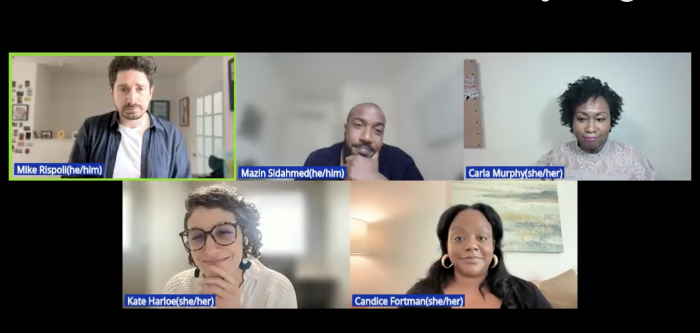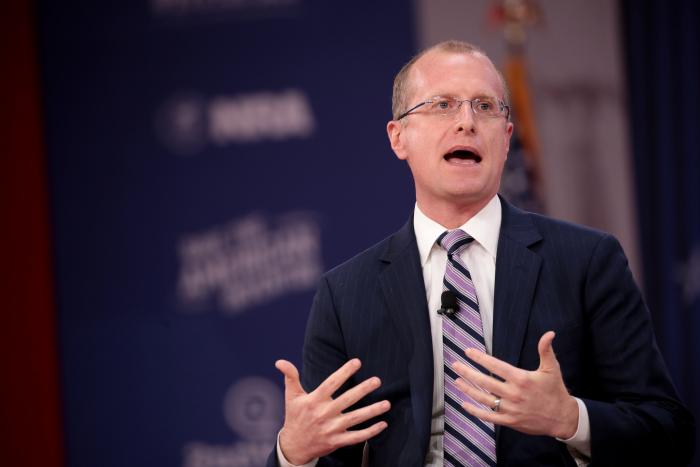The T-Mobile/Sprint Merger Would Cut the Cord for People of Color

What would you do without a cellphone connection? Could you survive and thrive in today’s world?
For most of us, the answer is “no.”
T-Mobile and Sprint announced their intention to merge in April 2018, and they’ve worked hard to convince everyone it’s a good deal.
In reality, this merger would make life harder for everyone — especially low-income communities and people of color, who disproportionately rely on T-Mobile and Sprint for more affordable plans and prepaid services.
T-Mobile and Sprint cater directly to people of color and the poor
After the government blocked AT&T from taking over T-Mobile back in 2011, T-Mobile saved itself by competing hard for new customers.
The company rebranded as the “Un-Carrier” and got rid of contracts and credit checks for certain plans. This meant the racist credit-rating system wouldn’t stand in the way as a barrier for people of color — and this approach completely changed the mobile game.
Sprint wanted these new customers, too. Like T-Mobile, it became a major provider of prepaid mobile options, which are a lifesaver for poor people and folks who don’t keep bank checking accounts.

Less competition means less motivation to make plans affordable
If the merger goes through, the new gigantic T-Mobile will have no reason to compete for low-income customers and others on the margins of society. Three companies — T-Mobile, AT&T and Verizon — will control the market and call the shots.
The new T-Mobile won’t be the “Un-Carrier” we grew to love. It will be a corporate behemoth like Verizon, with the power to set prices as it sees fit and no pressure to make services affordable.
Workers will be laid off in urban communities
T-Mobile has already informed Congress that it will begin closing stores if this merger is approved. What it didn’t mention is that most T-Mobile and Sprint prepaid stores are located in urban areas primarily populated by people of color.
According to the Communications Workers of America, this merger would cause more than 28,000 job losses — and that means Black and Brown workers would be hit the hardest.
The digital divide could get worse — much worse
Competition among mobile companies has lowered prices and helped close the digital divide.
How? Low-income households are more likely to rely on cellphones as their sole internet connection. If they can’t afford mobile plans, they’ll lose home access to the internet. And this will devastate their ability to connect to health care, employment, even simple everyday tasks like doing homework.
Unemployment, the homework gap, the digital divide, poverty — all these issues and more stand to get worse if the FCC continues to put corporations ahead of people.
What can we do?
People across the country are calling, writing and posting every day to let the FCC know that it must reject this deal.
You can help: Visit freepress.net/stoptmobilesprint to learn more and add your voice. Spread the word in your community, and get everyone talking about what’s at stake.
Don’t let the Trump FCC disconnect the people who need affordable phone and internet access the most.
You may download a shorter version of this explainer as a printable handout.





